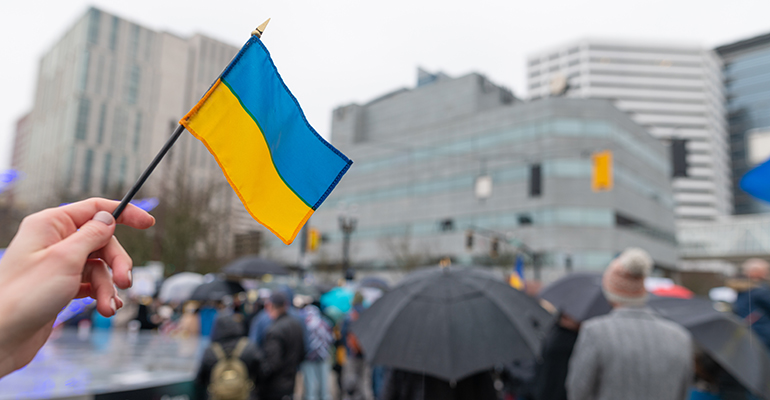News
War in Ukraine: Growing number of brands exit Russia in protest
11 Mar 2022Following Russia’s invasion of Ukraine on 24 February, many Western multinationals responded by pausing their operations in Russia. However, although the list of major companies exiting the country is growing, not all enterprises have elected to sever their ties with Russia.
As consumers and investors alike have put pressure on companies to close stores, disengage from investments and discontinue selling, many food and beverage companies from across the world have pulled the plug on Russian business. This week, the American firms McDonald's, Starbucks and Coca-Cola faced threats of boycotts by consumers for continuing to operate in Russia, and in response, all three companies suspended business. Similarly, Unilever, Yum Brands — which owns the fast-food chains KFC and Pizza Hut — and PepsiCo announced they would disengage from business in Russia.

McDonald's said it is closing 850 restaurant locations in the country and Starbucks announced it is halting operations at all of its coffee shops. Coca-Cola said it would also stop its operations in the country. Yum Brands shuttered 70 KFC restaurants and all 50 Pizza Hut restaurants. Unilever suspended both imports and exports, The New York Times reported.
Business actions do not always have an equal and opposite reaction
Suspending Russian operations does not affect all businesses equally. McDonald’s has a large presence in the country with Russian sales accounting for 9% of its global revenue, so closing its restaurant locations will leave a mark on its quarterly financial statements. Such a hit to the pocketbook is not something that all businesses can stomach. The company’s popular competitor Burger King said it would maintain operations in the country but redirect its Russian profits to humanitarian efforts, the BBC reported.
For Coca-Cola, Russia only accounts for 2% of the firm's operating revenue and income, while its rival PepsiCo has a noticeably larger presence in the country with 4% of its total revenue originating from the country. PepsiCo said in a statement that it would discontinue its beverages Pepsi, 7Up and Mirinda, but that it would continue selling “essentials.”
As a food and beverage company, now more than ever we must stay true to the humanitarian aspect of our business. That means we have a responsibility to continue to offer our other products in Russia, including daily essentials such as milk and other dairy offerings, baby formula and baby food,” PepsiCo CEO Ramon Laguarta said in a statement.
Not all firms are cutting ties with Russia - but may risk a consumer backlash
Other firms have chosen to continue their business in Russia despite the mounting pressure to do otherwise. The British paper The Telegraph itemized a list of companies that are remaining in Russia. Mars, Cargill, Burger King, Mondelez, Kraft Heinz and Kellogg’s all currently operate in Russia, although Kraft Heinz and Kellogg have suspended exports. According to the Yale School of Management, Mars has invested $2 billion (€1.8 billion) in Russia, Cargill generates $1.1 million (€995,841) in revenue from its 1,500 Russian employees, Burger King operates more than 800 locations in the country and Mondelez generates $1 billion (€905.3 million) or 3.5% of its total revenue from the country.
Although there are large sums of money at stake for companies that are pulling out of Russia, there are less tangible consequences if they do not do so. Increasingly, consumers are interested in companies’ response to world events, including war and climate change, and the conflict in Ukraine has catalysed consumer opinions on taking action. Prior to McDonald's and Coca-Cola announcing their exit from Russia, the hashtags #BoycottMcDonalds and #BoycottCocaCola were widely shared. Companies that continue to operate in Russia may face consumer judgment that could have long-lasting effects on their sales.
As this war proceeds, the list of companies joining the mass exodus from Russia is likely to continue to change.
